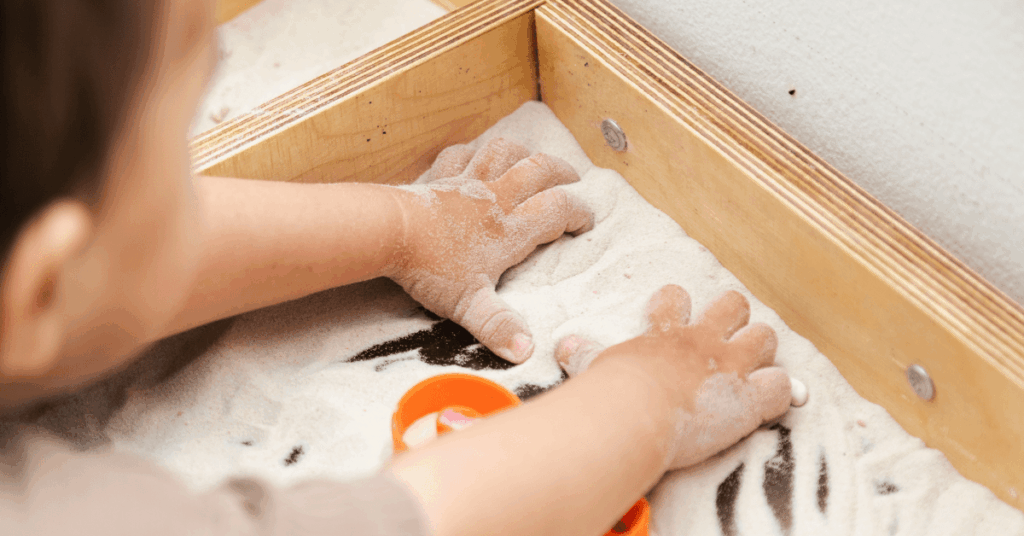Are your kids experiencing sibling rivalry? Here’s how to manage it
Many children typically get along with their siblings, it’s also normal for them to clash from time to time.
Knowing how to handle sibling rivalry can feel challenging, especially in the moment.
Recognising the early signs that rivalry is escalating and understanding tendencies in children to fight can empower parents and children to manage any conflict.
This knowledge can significantly improve the health of your children’s relationships as well as your families.
Creating a strong, solid bond can provide a safe and reassuring relationship between them for the future.
What is sibling rivalry? What can it include?
Sibling rivalry can affect siblings whether they are related by blood or marriage.
It can range from arguments, bickering, physical altercations, feelings of jealousy and competition between siblings.
It can cause constant tension and fighting in a household that affects their relationship as well as that of the entire family.
Sibling rivalry usually begins when siblings are quite young and is often about trivial things like toys, delayed attention and jealousy.
When they get older it can become more competitive, driven by a want for parental attention.
Observing what is healthy and unhealthy sibling rivalry is important in the health of your children’s relationship in the future.

Why sibling rivalry occurs
Sibling rivalry can occur for a number of reasons:
- Even before a child is born – introducing a new child into the family can sometimes cause the first born to become jealous. Introducing your child slowly to the idea is important in creating excitement for the child when their sibling arrives.
- Different ages will encounter different issues when it comes to sibling relationships. Younger children may not have adequate social skills to communicate effectively, for example.
- Age differences between siblings can also contribute – if your children are close in age, they’re more likely to fight.
- The individual personalities and temperaments of your kids.
- Your conflict resolution skills as a parent.
- Your conflict resolution between yourself and your partner.
- Parenting styles.
How to handle it
Every parent wants a harmonious home which is safe for all.
Handling sibling rivalry can often be difficult as it depends on the child, their age, and your relationship with them.
Some arguments can be over quickly with them working it out on their own, whereas others need parental intervention.
It can help to be proactive – make sure you’re inclusive with all of your children and provide equal amounts of affection and attention.
When it comes to mediating, ensure you:
- Deescalate any heightened tension.
- Listen to both sides.
- Identify the cause of the fight.
- Ask each child what they would like you to do about the situation (for older children)
- Brainstorm a solution together.
- Come to a healthy conclusion – sometimes they just need some time and space to gather their thoughts and reset.
- For younger children, calming situations before they escalate is recommended. Following this, make time to talk and apply consequences fairly, these are learning opportunities.
Encourage cooperation and sharing, and pay attention to times that conflict occurs.
Observe any recurring reasons for conflict, you may be able to mix up your routine a bit.
When it comes to older children, they require more intellectual communication and need to be handled with care.
By listening to each child, making them feel heard and understood is incredibly important in order to create a comfortable home environment.
When the child communicates their issue with the other sibling to you, it gives you a fuller picture of what happened and prevents you from ‘taking a side’.

Sibling relationship dynamic differences
Different family dynamics can affect interactions between members.
These include small and large age differences, personality differences, larger families, blending of families, and adopting or fostering a child.
Having them all work together on a task and providing positive reinforcement when that task is completed together creates an environment where getting things together is better than doing it alone.
Whether you have a larger family, or experiencing the changes a new sibling, blended family or adoption can bring, there’s ways to manage the various dynamics in healthy ways.
Validating your child’s emotions can help prevent jealousy, stubbornness, confusion, isolation and other difficulties.
Including:
- Spend special time with your child and make sure you show up.
- Be there for them and have an open line of communication so they feel safe.
- Actively creating a space for each sibling to bond with the new child/family member.

Dismissing favouritism
We naturally develop preferences for certain things in our everyday life such as food, products and sometimes these arise in our relationships.
Choosing favourites between siblings causes resentment and, potentially, a constant state of tension between both children and the adult.
This commonly continues into adulthood and can cause depression, anxiety, and post-traumatic stress disorder (PTSD).
Ways to prevent this include:
- Being aware of how you treat each child in certain situations – avoid constantly taking one child’s side.
- Avoid comparing your children.
- Avoid taking sides when trying to deescalate a situation between siblings.
- Don’t expect one child to be the other’s parent.
Raising siblings can have challenging moments, especially when there is tension.
There are ways you can handle these situations in effective ways, even from an early age.
Doing this is incredibly beneficial in the long term health of your children’s relationships within the family.
Sometimes you need a little extra help
If you’re concerned about your child’s behaviour, you can reach out to Early Start today.
We offer early childhood intervention services to help support healthy family relationships.
Our friendly team is available to answer any questions you may have and when you’re ready, reach out to Early Start to book an appointment.









